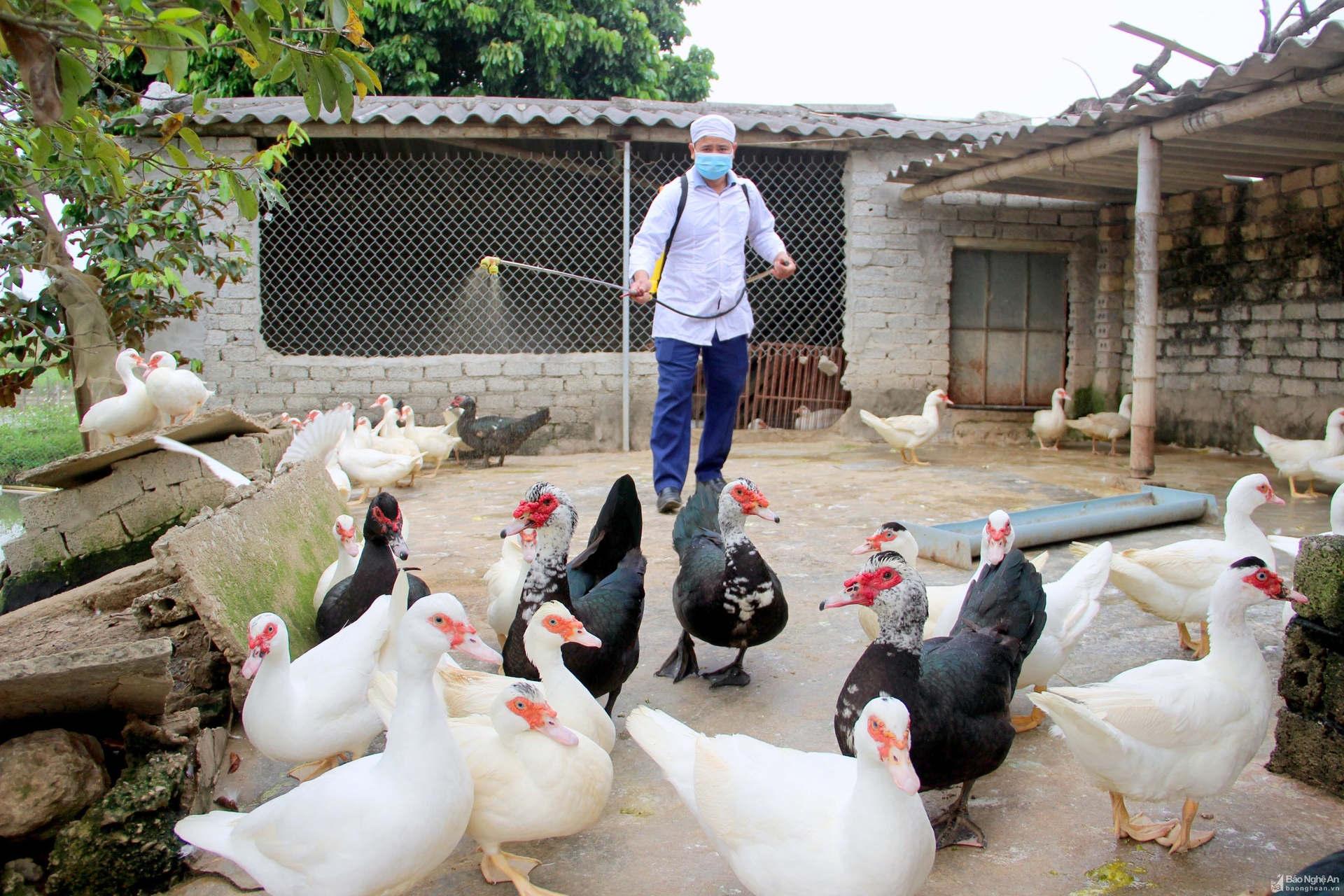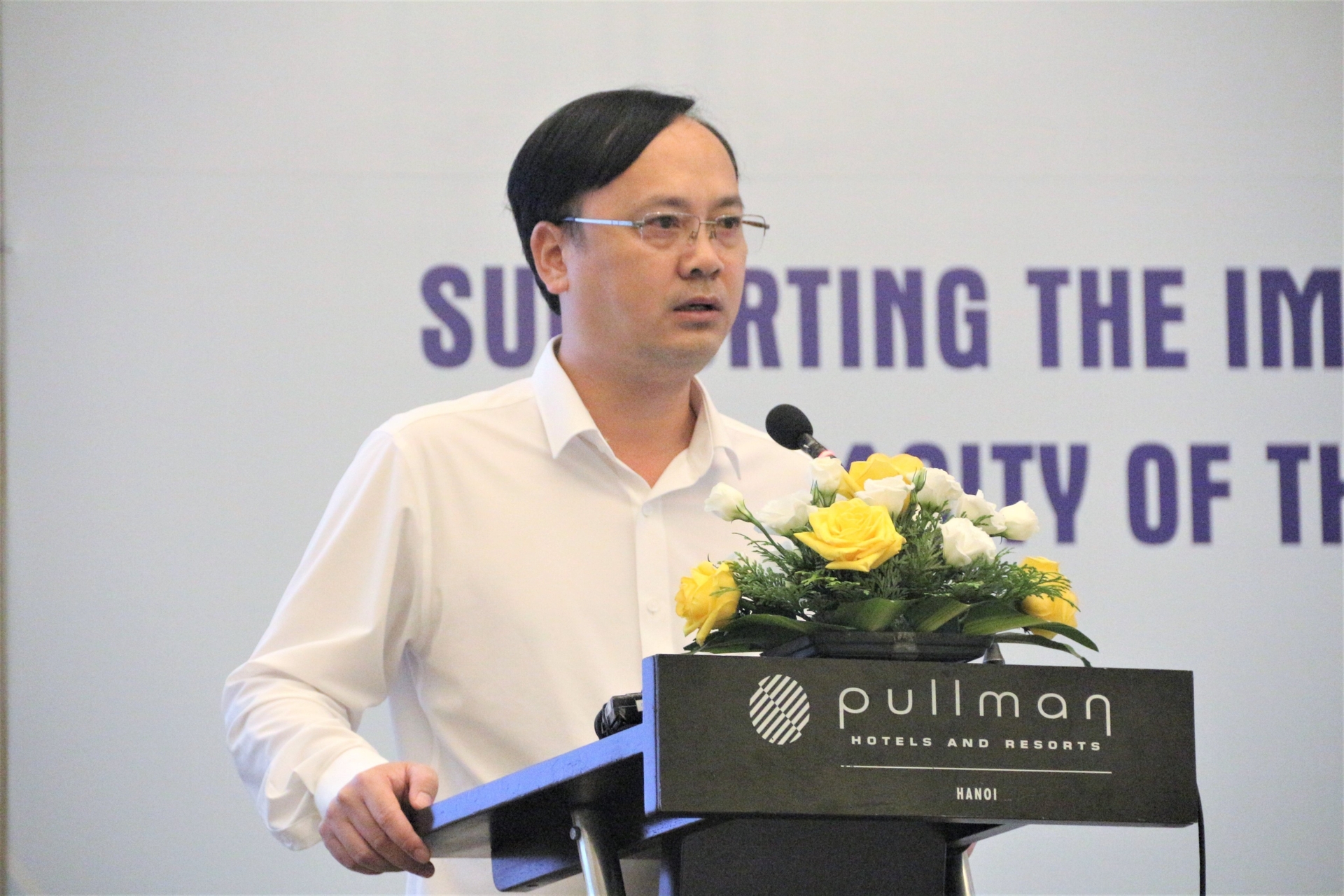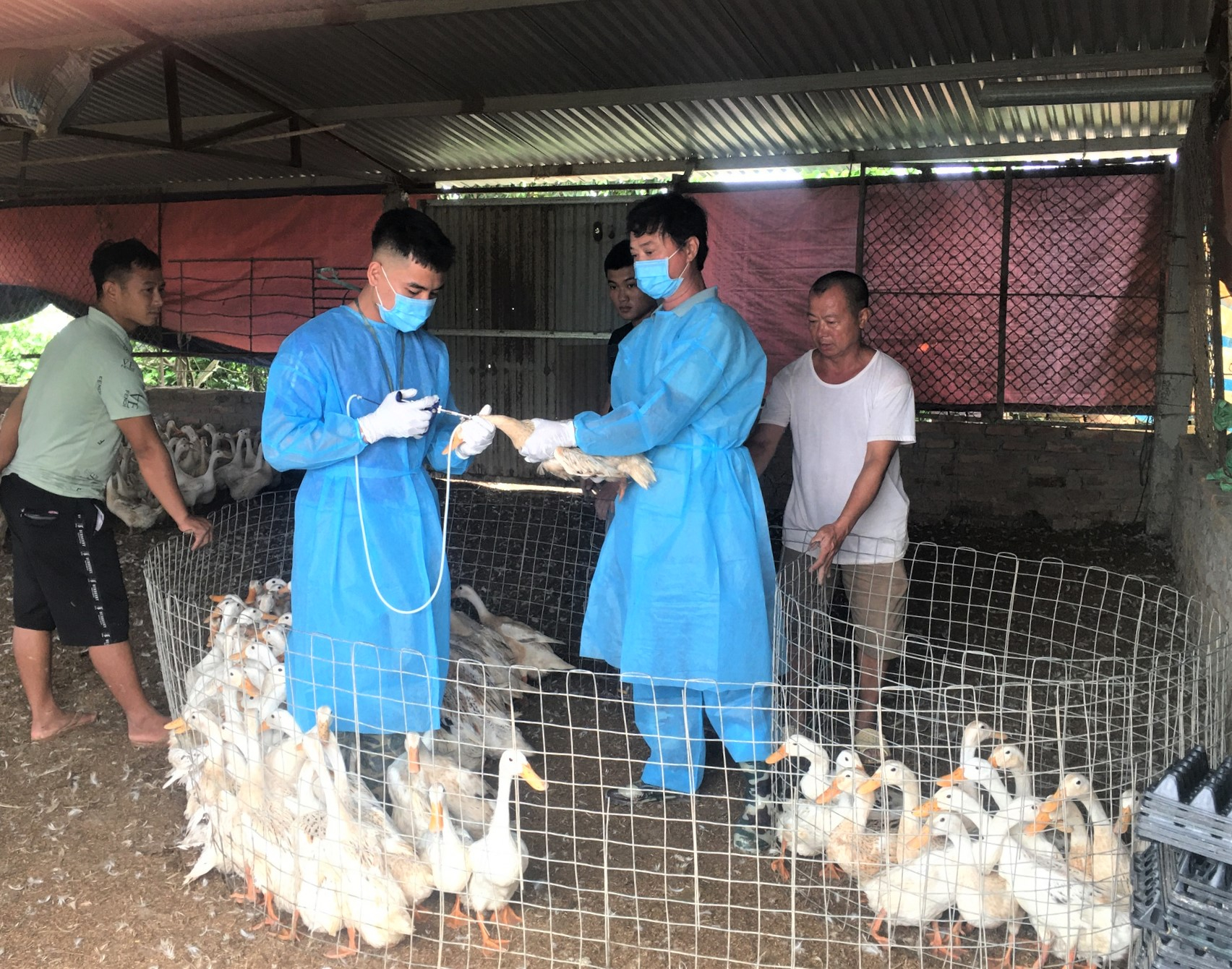
Recently, the veterinary system has undergone major changes at all levels, especially county and township levels, merging the veterinary station with other units, resulting in surveillance, disease detection and disease reporting. Also in many places there are delays in not implementing. Picture: PH.
At the Consultative Conference on Supporting the Implementation of the Project to Strengthen the System of Specialized Veterinary Management Agencies at All Levels for the Period 2021-2030 on June 23, the Ministry of Animal Health (MARD) said: “Recently, the veterinary work of Vietnam is encountered many difficulties and limitations. In particular, Vietnam has a very long border with other countries, where there are very difficult terrain to control in many places, and at the same time, the daily activities of border residents are lively, vehicles moving in large quantities for commercial purposes, tourism. It is these things that increase the risk of dangerous diseases entering Vietnam.
In addition, in recent times, the veterinary system has undergone major changes at all levels, especially at district and municipal level, merging the veterinary station with other units; lack of veterinary staff to advise and organize epidemic prevention in the region; leading to delays in disease surveillance, detection and reporting, and even failure in many places; Many locations do not have the base and community veterinary staff to provide information.

Animal Health Department Deputy Director Phan Quang Minh spoke at the conference. Picture: Pham Hieu.
Local veterinary authorities do not have information about animal diseases occurring in the region, so the implementation of measures to prevent and control the disease is not timely, synchronous and inconsistent.
A number of dangerous new animal diseases have entered Vietnam, such as African swine fever (DTLCP) in 2019 across the country, causing direct damage of about VND 30,000 billion; Dermatomyositis (VDNC) became infected in Vietnam and spread rapidly and widely, sickening tens of thousands of cattle and forcing thousands of buffalo and cows to exterminate; Animal diseases transmitted to humans (bird flu, rabies, anthracnoses…) have complicated evolutions and the risk of diseases occurring in livestock and spreading to humans remains.
Dangerous aquatic diseases are still common, damaging tens of thousands of hectares of shrimp, pangasius and mussel farms every year.
As for the difficulties in quarantining animals and animal products, the provincial veterinary bureau lacks many animal quarantine officials to carry out quarantine duties under the Veterinary Medicine Law; They have a major impact on controlling the movement of animals and animal products, leading to food insecurity and increasing the risk of disease.
Due to the large area, there are many intersections and shortcuts to other places, and animal transport control has many difficulties due to insufficient human resources.
When an epidemic occurs, the provincial people’s committee sets up cross-sectoral quarantine checkpoints to control transportation in and out of the province, and the place must mobilize veterinary personnel from the county’s agricultural service centers to participate. However, if a violation is found, it cannot be processed because the center’s staff is not a quarantine officer.

The specialized provincial-level veterinary management agency lacks many animal quarantine officials to carry out the quarantine duties required by the Veterinary Medicine Act. Picture: BT.
Regarding the difficulties in slaughter inspection and veterinary sanitation inspection, the Ministry of Animal Health said that provincial livestock and veterinary sub-departments cannot delegate slaughter inspection to service centers. The center’s agriculture is not under the direct management of the subdivision.
Most northern provinces and cities do not have enough staff to carry out slaughter control and only control about 30% of the 27,700 small slaughterhouses in total. In slaughterhouses with a slaughter capacity of more than 50 cattle or more than 200 poultry/day, many localities do not have or insufficient veterinary staff to carry out the slaughter inspection.
The work on the management of veterinary drugs on the ground faces many difficulties, the implementation is out of sync and inconsistent, some places have not paid due attention to these tasks, such as: control the conditions of veterinary drug trade in the province. animal pharmacies; handling and recall of veterinary medicinal products; Advertising for veterinary medicines; oversee the process of testing veterinary medicinal products; Management of the prescription and use of medicines, the quality of medicines in circulation, product labels, the use of prohibited medicines, counterfeit medicines, contraband medicines and medicines not on the list of medicines authorized for marketing; Difficulties in implementing measures to prevent drug resistance and antimicrobial residues, resulting in a major impact on the export of animals and animal products as they do not meet the importing country’s requirements.
In addition, all importing countries currently require that Vietnam’s animal products (including meat, eggs, milk, honey, seafood, etc.) for export are produced and monitored according to the chain and meet the above requirements. Therefore, the change in the veterinary system results in the veterinary system not working in accordance with international regulations, requirements of other countries and regulations of Vietnam (according to the Veterinary Medicine Law, the Animal Husbandry Law, the Animal Health Law, and the Animal Health Law). food safety and regulatory documents); It is very difficult to organize the implementation of disease safety surveillance, food safety and traceability, which leads to many obstacles in exporting animal products from Vietnam to other countries.
The transformation of the organizational apparatus and bureaucracy of the county-level veterinary specialty management agency into a public, non-business entity toward autonomy has resulted in the state management system at the county level being vacant and unsynchronized. between the practice and system of legal documents on state administration of veterinary medicine.
Due to these difficulties and shortcomings, the Ministry of Agriculture and Rural Development has reported the project “Strengthening the capacity of the system of specialized veterinary management agencies at all levels, period 2021 – 2030” and submitted it to the Prime Minister for approval.
On March 22, 2021, the Prime Minister issued Resolution No. 414/QD-TTg approving the project “Strengthening the capacity of the system of specialized veterinary management agencies at all levels, period 2021 – 2030” with the aim of strengthening the system of specialized veterinary management agencies up at all levels, strengthening and strengthening their capacities, ensuring effective and efficient organization and implementation of veterinary activities; We must fight animal diseases well, protect public health and actively integrate into the international community.

